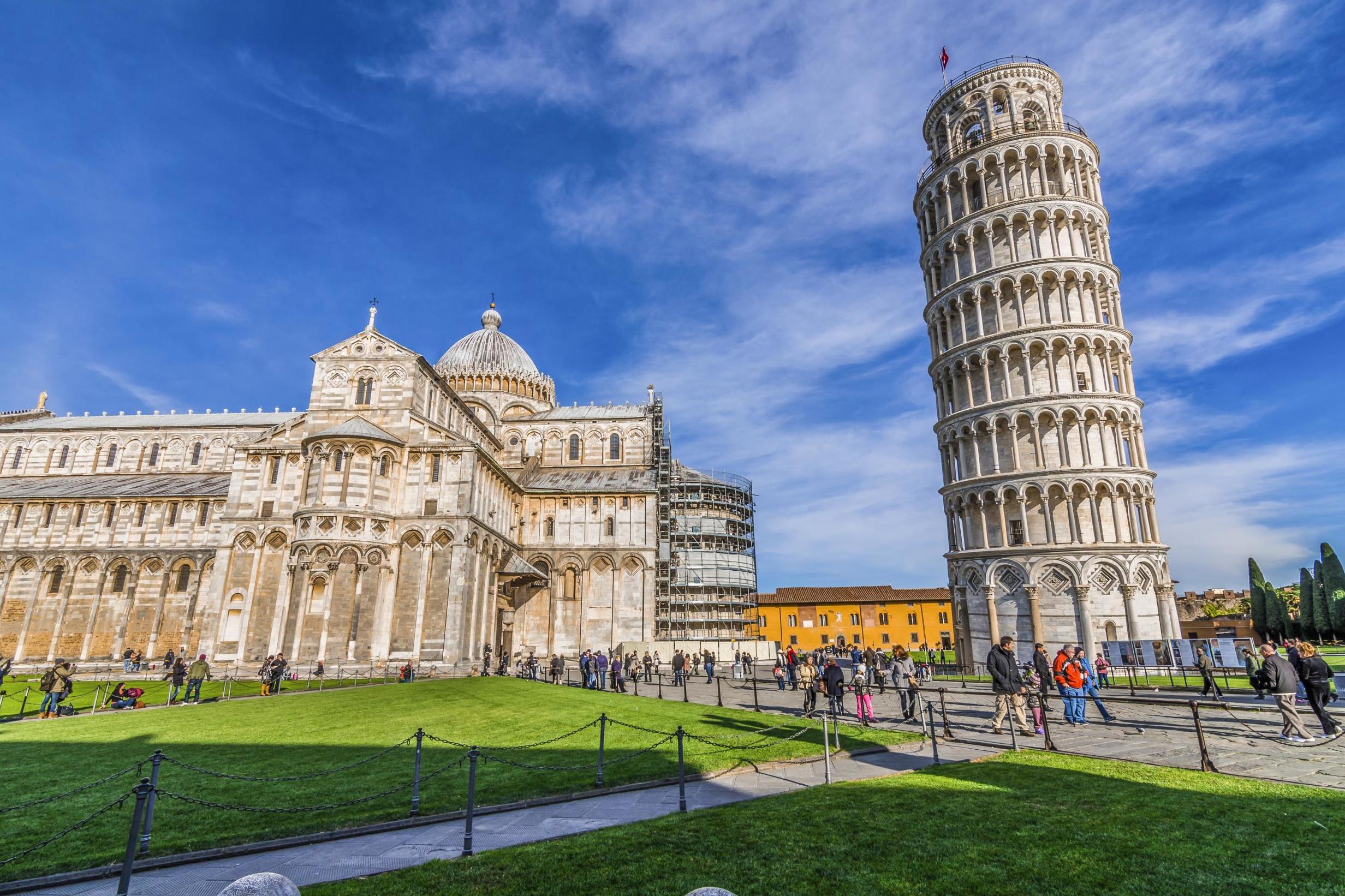Should I be leaning towards a peak summer visit to Pisa?
Simon Calder answers your questions on Italy, hotel buffets and passport headaches


Q I am thinking of going to Pisa at the beginning of August. Is this wise?
Barbara C
A Pisa is a joy. The Piazza dei Miracoli (Square of Miracles), presided over by a bell tower at a five-degree tilt, comprises one of the world’s greatest religious complexes. Subtract for a moment the Leaning Tower, and what remains with a fine, walled city strewn with Renaissance monuments, exquisite churches and impressive museums. As with any Italian city, you are spoilt for choice of delicious places to eat and drink.
Yet wherever you choose to travel, in Italy and worldwide, timing is everything. I am happy to visit Pisa at any time between October and May. While I love Pisa, I would go out of my way to avoid the city in the peak summer months – particularly July and August. Lured by a wonky bell tower, the world converges on Pisa. They arrive en masse in cars, on coaches, by rail and cruise ship (via the nearby port of Livorno).
All the locals who are able to flee to the coast or the hills in July and August will do so: the average daily high in both months is 30C, with some days well above this figure. At the same time, the gravitational pull of such a mass of tourists attracts unsavoury characters who prey upon the hot and hapless visitors.
If, however, circumstances mean that you have no other option for travelling to Pisa than early August, it is still possible to enjoy the best of the city and region. The attractions open at 9am, and by 10am the crowds are intense and remain so until around 5pm. Then, though, they fade away. Museums are open until 8pm in July and August, and the Tower itself until 10pm.
So spend the first part of the day out of town: to the east and south spreads Tuscany, for which Pisa is the primary gateway. The northern hinterland is Puccini country: the great opera composer was born in the nearby gem of a city, Lucca, and lived on the coast in Torre del Largo and Viareggio, both blessed by Mediterranean breezes. Timeshift your city sightseeing to begin at around 6pm, and perhaps book a ticket for the Tower at sunset – which, at the start of August, is at 8.40pm.

Q My daughter’s forthcoming wedding in May will be at a five-star all-inclusive hotel in Punta Cana in the Dominican Republic for 40 guests. We joined an online forum about the hotel and 75 per cent of the comments are about food poisoning. The last comment we read stated that most of a bridal party were too sick to attend a family wedding. It’s too late to change hotels and my daughter is so stressed thinking the wedding will be ruined. I just want my daughter’s wedding to be perfect. What can we do?
Name supplied
A As you will appreciate, the fact that three-quarters of online comments are about food poisoning does not mean that 75 per cent of all guests suffer. Even so, I understand your concerns. All-inclusive hotels are more likely than other forms of accommodation to experience outbreaks of food poisoning. Guests take three meals a day in the same location, and not many of them will take the appropriate steps – in particular hand hygiene – to avoid infecting others. While kitchens will naturally take precautions to reduce the risk of infection, outbreaks can occur – and spread very quickly. Buffet food may be left out for prolonged spells in temperatures that promote the rapid growth of microbes. The fastest rate of growth is around 37C, roughly human blood temperature; the average daily high in Punta Cana in May is 30C.
If you booked through a travel agent, I hope they pointed out such risks, as well as the hot and humid weather in the Caribbean in May. Ask the agent to contact the holiday company about your concerns. But legally, the fact of previous bouts of food poisoning at a property does not give future guests any right to cancel.
Besides making your understandable concerns clear to the travel company, I suggest you brief all the wedding guests about how to reduce the risks: being wary of cold or reheated meats (particularly poultry), milk and cheese, as well as ice and water. Should the worst happen, try to keep meticulous records of what was eaten and when in order to allow a claim to be made. But also bear in mind that travelling to the tropics during a hot and humid spell is likely to make a proportion of visitors ill.

Q We are planning a short-notice fortnight in Goa, departing on 4 March. My passport was issued on 2 September 2014 with an expiry date of 2 February 2025. Will this be valid for travel to India? I enquired with the travel company and received three different answers. One said: “No, because of the six-month rule.” A second said: “Yes because India’s not part of the EU where the rule applies.” The third said she wasn’t sure. Can you help me with a definitive answer?
David W
A Yes, I can, and the travel firm should be extremely embarrassed that only one in three of its staff could provide the correct answer. The only part of the world that is at all interested in the issue date of a passport is the European Union (and wider Schengen area, encompassing Iceland, Norway and Switzerland). Third-country nationals cannot enter this area with a passport that has had its 10th birthday; accordingly, you will be able to get into the EU until 1 September 2024.
Everywhere else, including India, is interested only in the expiry date printed on your passport. The document must be valid for at least six months beyond your date of entry into India. You could therefore travel out to India any time up to 2 August 2024.
UK travel firms with a limited number of destination countries should be able easily to give the correct answer, at least to British passport holders, their main constituency of customers. They could also help by providing the current Foreign Office warning that your passport must have two blank pages for your visa.
Given that there is just a week before your trip, getting a visa is the most pressing issue. Apply immediately, using the official site indianvisaonline.gov.in rather than one of the unofficial firms that pay search engines for the privilege of appearing high up in the listings. Don’t hand over any cash for the trip until you have been granted the e-visa.
Email your question to s@hols.tv or tweet @simoncalder
Join our commenting forum
Join thought-provoking conversations, follow other Independent readers and see their replies
Comments
Bookmark popover
Removed from bookmarks